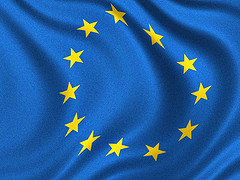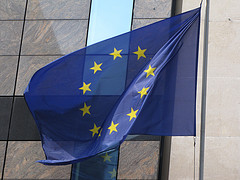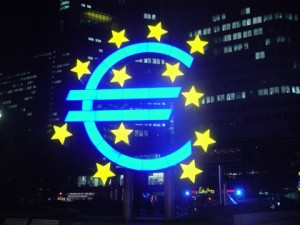
The Soapbox Goes Wireless: How the digital revolution is changing free speech
In our increasingly digital times, freedom of expression may look like one of the positive beneficiaries of our ever more interconnected world. Countries like China or Iran build firewalls and employ small armies of censors and snoopers in determined attempts to keep their bit of the internet controlled and uncritical of their ruling elites. But with social media, blogs, citizen journalism, and ever greater amounts of news on a diverse and expanding range of sites, information is shared across borders and goes around censors with greater ease than ever before.
Yet online and off, free speech still needs defending from those in power who would like to control information, limit criticism or snoop widely across people and populations. And it would be a mistake to think the free speech attackers are only the obvious bad guys like China, Iran or North Korea.

If Francois Hollande wins: what chance for a real change of direction in France and Europe?
Francois Hollande, candidate of the French Socialist Party, is still the frontrunner in the French presidential elections. But he is untested in government. And in the midst of the euro crisis and the eurozone’s commitments to binding austerity, what are the chances that a Hollande victory could represent a real change of direction in France and catalyse a real debate about social democratic alternatives in Europe? Or would President Hollande find his hands tied by decisions already taken? Hollande is putting his central emphasis on youth and on justice. He is ruffling feathers in Brussels and Berlin by insisting that he will renegotiate the EU’s newly agreed fiscal treaty – enshrining budget discipline and austerity into eurozone countries’ national laws …

What Future for a Greece in Crisis?
An early spring Sunday afternoon in Athens finds tourists and Greeks alike chattering away in cafes and on terraces soaking up the sunshine. But a walk around the centre soon reveals boarded up shops and buildings – many from closures, some from arson attacks at demonstrations this February and earlier. By the famous ‘neo-classical trilogy’ of buildings comprising the National library, Academy of Greece and University of Athens, you can see drug-users injecting on the pathways. It is all part of the visible face of the deep social, political and economic crisis that is battering Greece. Economists and other pundits continue to argue over whether the second bail-out deal agreed at the end of February will be the last and …

Low Key EU Summit: Tired Europe mired in crisis and recession or rebounding?
As 25 of the EU’s 27 member states signed the fiscal treaty designed to put a line under the euro crisis on a grey and misty Brussels morning, the mood at the summit was low key and low energy (the UK and the Czech Republic the two non-signatories). Politicians and officials alike did their best to spin that the crisis was past. French President Nicolas Sarkozy at his press conference, insisted ‘ we are turning the page on the financial crisis’ and that Europe had shown how fast it can move, bringing the treaty in just three months after the idea was launched at the December summit 3 months before. But Sarkozy himself looked tired and pale, rather than his …

Another Summit, Another Bleak Day for European democracy
EU leaders gathered in Brussels on Monday for more ritual banging of the euro-austerity drum, with 25 of the 27 member states agreeing to the Germany-inspired ‘fiscal compact’ treaty – to be signed in March (only the Czechs joining David Cameron in sitting on the sidelines). With the new treaty commitment to outlaw expansionary – Keynesian – economic policies, it was another bleak day for European democracy. Some had hoped that the summit’s focus on growth and unemployment, especially youth unemployment, meant the Europe’s top politicians were finally recognising Europe’s deepest problems – and might even take action. But it was a bleak day too for the unemployed with a tired rehash of free market policies in the summit statement …

Cameron taking UK out of Europe without a referendum?
When the ‘make or break’ summit to save the euro finished in Brussels on Friday afternoon, David Cameron headed rapidly for the exit without the traditional end of summit press conference (making do, unusually, with only an interim pre-dawn one as the leaders stumbled out from their almost ten hours overnight talks for a short break before breakfast). As the dust settles from this critical summit, the gap between the UK and other European countries has never been wider, nor the UK’s influence closer to zero. As Tory sceptics applaud what any sane observer would call a major foreign policy disaster, could it be that Cameron is in the process of taking the UK out of the EU without a …

Europe in the Soup: Three Scenarios
In ‘Duck Soup‘ – the 1930s Marx brothers’ film – a powerful rich lady tells the ailing government of Freedonia, she will only bail them out with another loan, if her favourite – Groucho Marx – becomes president: chaos follows. Europe may or may not escape chaos as the euro crisis unfolds. But when asking what sort of European Union will emerge out of the Duck Soup of the crisis, there are no upbeat scenarios. Desperate Politics drives all scenarios The euro crisis has battered the EU’s political dynamics, clout and democratic credentials. The sight of technocrats running the Greek and Italian governments has been criticised as anti-democratic . But Europe’s political failings go beyond this. Neither Angela Merkel nor …

Europe’s political crisis at heart of eurozone meltdown
The first week of November 2011 has been a tipping point; the moment when it belatedly dawned on pundits and politicians alike that the euro crisis at heart is political – and that if it’s politics versus the markets, then politics is losing hands down for now. From outgoing Greek Prime Minister Papandreou’s torpedoing of the G20 by his ‘bolt from the blue’ referendum call, swiftly withdrawn under outraged pressure from the Merkel-Sarkozy tandem, to Italy’s Berlusconi teetering on the edge, then announcing he will resign and abandon his attempts to cling to power, to Sarkozy himself introducing larger than expected ‘austerity’ cuts despite the upcoming presidential election in 2012 – politics is back. But normal EU politics this is …










